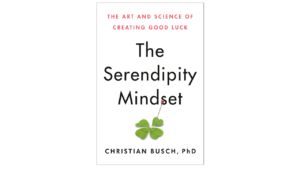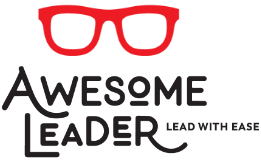A 4-part model to help you increase your EQ: awareness, self-management, social awareness, and relationship management.
Yes, we are still on the topic of emotional intelligence, or EQ.
There’s so much you can learn about EQ as a leader and so much you need to learn, so I’ve started things off for you with this 5-part series about EQ on the podcast and this blog.
In part 1, you learned about emotional baggage: the symbolic “rocks” or “weight” we carry around us: the feelings about ourselves, our work, and the experiences that negatively affect us.
In part 2, I walked you through an emotional hijacking. How understanding that your emotional reaction to something can govern your decisions and actions–and sometimes land you in hot water. Learning how and why your body and brain can control your words and actions is key to your growth as a leader.
And in part 3, I shared ways to think about why and how EQ can help you. Once you know how raising your EQ will help you as a leader, you’ll be more invested in learning about it. And it will be easier and more fun to keep the learning going.
Today, I want to tell you about a model for EQ–a really simple one. This model will help you consider how to apply what you learn about emotional intelligence.
If you go to Google today and type in “emotional intelligence,” you’ll get 250,000,000 results.
That’s nuts, right?
It’s way too much.
Despite the vast information out there about EQ, the model for emotional intelligence doesn’t differ much–from one thinker to another, which is a good thing for you. That makes it easier for you to learn about the concept and begin to master it.
The concept of emotional intelligence can be broken down into four areas:
- Self-Awareness
- Self-Management
- Social Awareness
- Relationship Management
Let’s take a look at each one.
Self-awareness is your ability to be aware of your feelings in the moment–as they are happening and developing.
It’s all about getting to know yourself, listening to yourself, and looking around at what’s going on. Being aware of what’s going on with the people around you and what’s going on with your body, mind, and heart. Symbolically and literally.
It’s about being self-aware. Do you feel those changes as your body physically reacts to people and situations? Do you feel tense before you start a tough conversation–and do you then make the connection between the feeling in your body and the situation you’re in? If so, you are being self-aware.
Self-awareness is about developing increased consciousness of your feelings and the why behind them.
The second area is self-management.
Self-management, as you can probably guess by what it’s called, is about managing your emotions and the resulting reactions–what you say and do.
When you self-manage, you identify and control impulsive feelings and behaviors. You self-regulate.
How well do you think you manage your emotions now? Are you allowing them to drive what you say, think, and do?
Self-management isn’t about bottling up emotions, pushing them away, or putting them into a box.
I feel that’s the wrong way to look at self-management.
It’s not about not feeling or not having emotions or not expressing yourself.
A few double negatives in there, sorry, but I want to make that clear for you.
Self-management is about actively overseeing your reactions.
People with high self-management are able to make decisions knowingly and willingly.
People with high self-management can be and still are spontaneous, but they tend not to make reckless, hasty, or impulsive decisions as much as others with lower self-management.
They see choices and decide, more often than not, what choices benefit them and are common to their goals at work.
They are still expressing their emotions freely–but based on the situation at hand.
The third area is social awareness.
Social awareness is your ability to recognize and respond to the needs of others.
Some people at work express their needs openly, such as “I am frustrated, and I need help.”
Others may not be as explicit with their feelings.
You may have to learn to “read” those people.
People with high social awareness are observing and listening to people and to themselves.
They are empathic and aware of organizational dynamics at work–the workplace politics that surround us all the time.
How well are you observing others? What they say or don’t say? What their body language says–the non-verbal cues?
And how do you react in return to what you are seeing from others?
How frequently do you use empathy in your interactions?
How often do you sit back and think about the situation from another’s point of view and then think about how to react toward that person?
Do you listen more than talk?
High social awareness is a keen desire to identify and understand the emotions of others.
Finally, there is relationship management.
Relationship management involves considering your own emotions while at the same time valuing the emotions of other people as you develop relationships with them.
People skilled at relationship management build bonds with others, and they value teamwork and collaboration.
They are able to handle conflict in productive and thoughtful ways because they consider what they need and want and also think about–and ask–what others need and want.
Think of your role in some of the difficult relationships you have at work. How aware are you of how your emotions are impacting those relationships? What are you doing to make those interactions even more challenging?
Then, think about your productive relationships. How are you behaving differently there vs. in the tough relationships you have?
Self-awareness, self-management, social awareness, and relationship management.
That’s the EQ model you can use to learn more about emotional intelligence.
As I said, this model is almost universal, so what you learn here with me will be relevant as you continue your EQ development.
In the final part of this series on EQ, I’ll walk you through how to identify your buttons–the things that drive you nuts–the people, places, topics, and so forth that make it harder for you to use the model I talked about today.
They make it harder for you to be self-aware, self-manage, to be socially aware, and build relationships. Your buttons are ones you allow others to push when your EQ is low.
Come back to the blog next week to learn how to identify those buttons!






